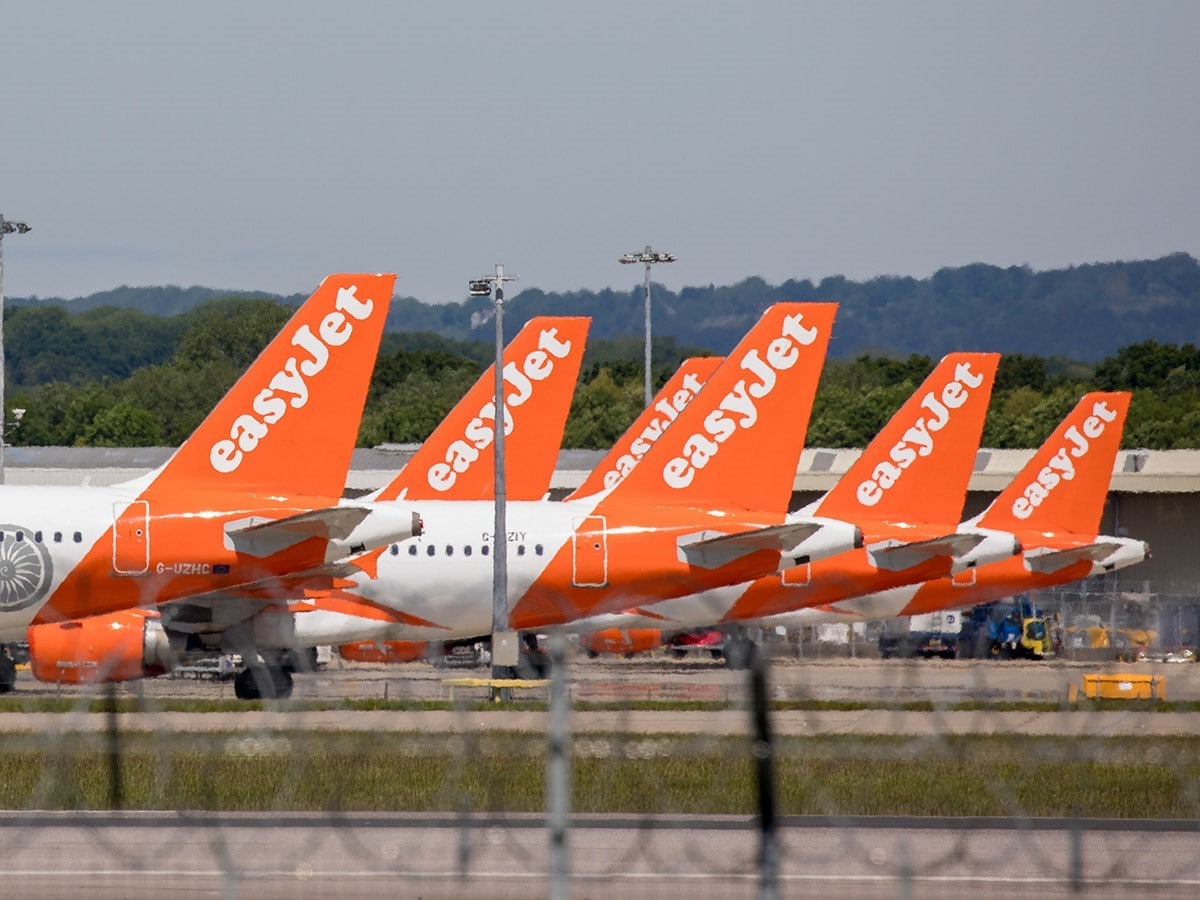
Ahead of the release of easyJet’s [EZJ.LSE] full-year earnings report on Tuesday, the emergence of a new Covid variant sent the easyJet share price into a tailspin.
EasyJet share price faces fresh headwinds
Although the travel industry had been showing signs of recovery, the discovery of a new Covid variant caused the easyJet share price to plummet 12% on Friday, just four days before the company’s fiscal year 2021 results announcement on 30 November. Fears over vaccine effectiveness and the prospect of further travel restrictions come as a serious setback for airlines, which have been hit hard by the pandemic.
This latest development comes just as things were starting to look up for easyJet. “During the [fourth] quarter, easyJet significantly ramped up its flying, which meant we were the second-largest airline operating in Europe this summer,” Johan Lundgren, CEO of the airline carrier, said in a trading update for the quarter ending 30 September that was released in October. He said that positive booking momentum into the fiscal year 2022 had encouraged the company to increase capacity plans for the first quarter up to 70% of 2019 levels.
Although these forecasts have now been thrown into doubt, easyJet had said before Friday that it was expecting bookings for the first half of the fiscal year 2022 to be double those taken in the first half of 2021. Though the airline’s fourth-quarter operating capacity was 58% of 2019, this is a significant improvement on the 17% capacity (of the third quarter of 2019) reported in the three months to the end of June.
Capital raise fails to lift the easyJet share price
Even before news of a new Covid variant broke, the easyJet share price was down 32% year-to-date, and 42.7% over the last six months, to 564.40p at the close on Thursday 25 November. The stock had peaked at a 52-week high of 1,095p during intraday trading on 7 May but has continued to nosedive since.
Investor sentiment was likely weighed down by the share dilution caused by the £1.2bn rights issue that allowed shareholders to buy 31 new shares for every 47 existing shares at a price of 410p – a significant discount to the theoretical ex‐rights price of 638p.
The rights issue, which was completed on 28 September, coincided with a 3.5% drop in the easyJet share price. Regardless, it was seen as a significant capital raise that helped to strengthen easyJet’s balance sheet and Covid-19 recovery plan, according to the October trading update.
Keeping a close eye on cash burn
Looking back at the airline carrier’s fourth-quarter performance, it generated a positive operating cash flow of £40m. It also trimmed its cash burn to an average of £36m a week, which was below its guidance of £40m a week.
Pre-tax losses for the fiscal year are expected to be between £1.135bn and £1.175bn versus a consensus at the higher end of the range. EasyJet reported a pre-tax loss of £835m and a net loss of £1.273bn during the fiscal year 2020, its first annual loss in over a decade. Net income saw profits of £430m in the fiscal year 2019.
As a result, investors will likely be keeping a close eye on net income in its upcoming results. They'll also be keen to hear how easyJet plans to cut costs, minimise cash burn, and reduce its debt.
As of 30 September, the company’s net debt was £900m compared with net debts of £1.125bn at the end of fiscal 2020 and £326m in 2019. It also had unrestricted access to around £4.4bn of liquidity at the end of fiscal 2021.
Analysts were bullish on easyJet share price before Friday’s tumble
Before Friday, when it became clear that easyJet and the wider travel sector were heading into a fresh storm, analysts had viewed rising capacity as a positive indicator. According to an October client note seen by the Financial Times, Bernstein’s transport equity researcher Alex Irving believed that easyJet’s increased steer on capacity “bodes well for the winter season”.
Irving reiterated a buy rating for the easyJet share price in November, according to Market Screener. He raised the price target from 800p to 845p, implying an upside of 49% from the 25 November closing price.
These forecasts now appear to be up in the air. With the threat of flight bans once again hanging over the airline industry, easyJet perhaps demonstrated some rare prescience when it recently confirmed that it will not provide guidance for the fiscal year 2022 due to the “continued level of short-term uncertainty” facing the travel industry.
Disclaimer: CMC Markets is an execution-only service provider. The material (whether or not it states any opinions) is for general information purposes only, and does not take into account your personal circumstances or objectives. Nothing in this material is (or should be considered to be) financial, investment or other advice on which reliance should be placed. No opinion given in the material constitutes a recommendation by CMC Markets or the author that any particular investment, security, transaction or investment strategy is suitable for any specific person. The material has not been prepared in accordance with legal requirements designed to promote the independence of investment research. Although we are not specifically prevented from dealing before providing this material, we do not seek to take advantage of the material prior to its dissemination.



















